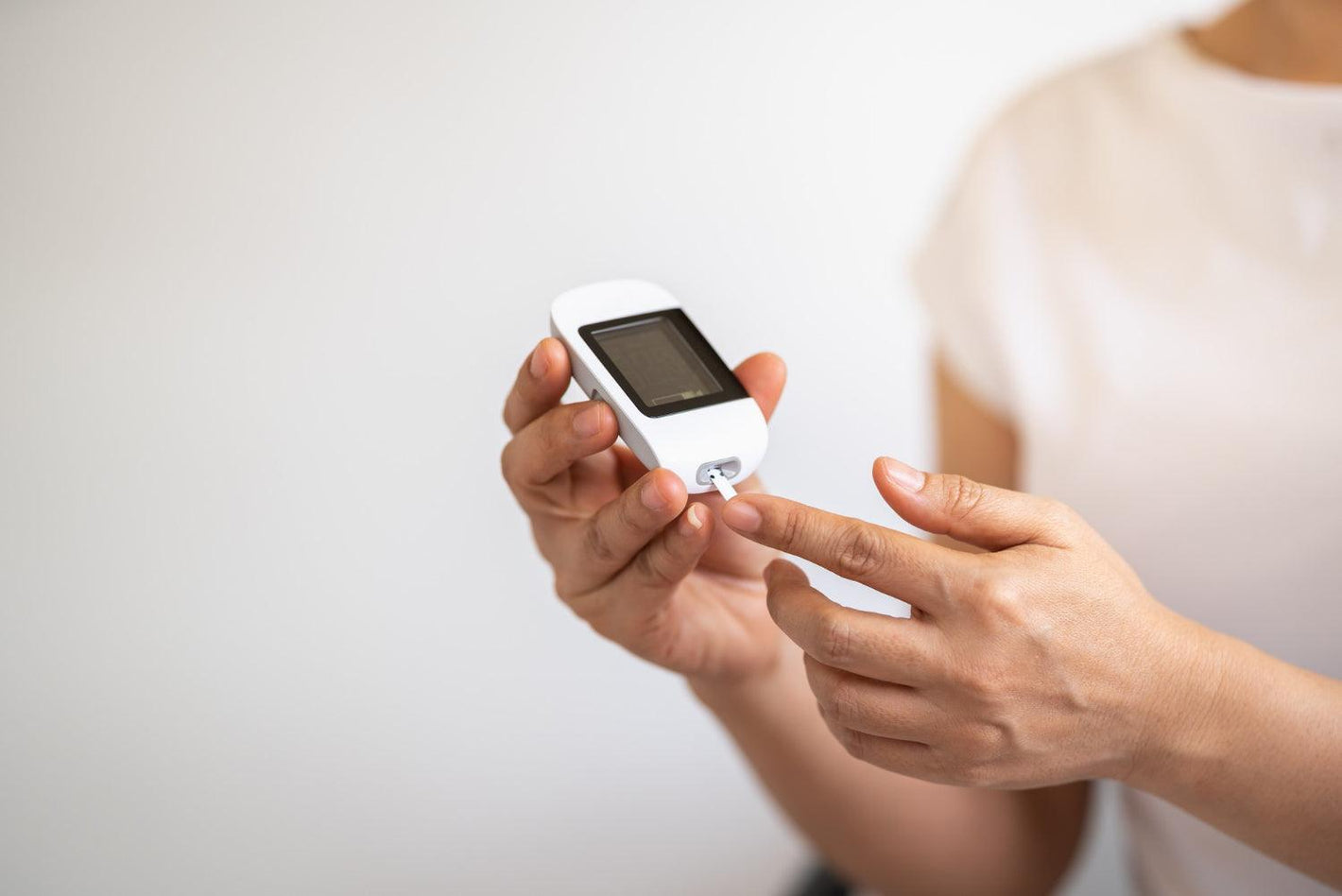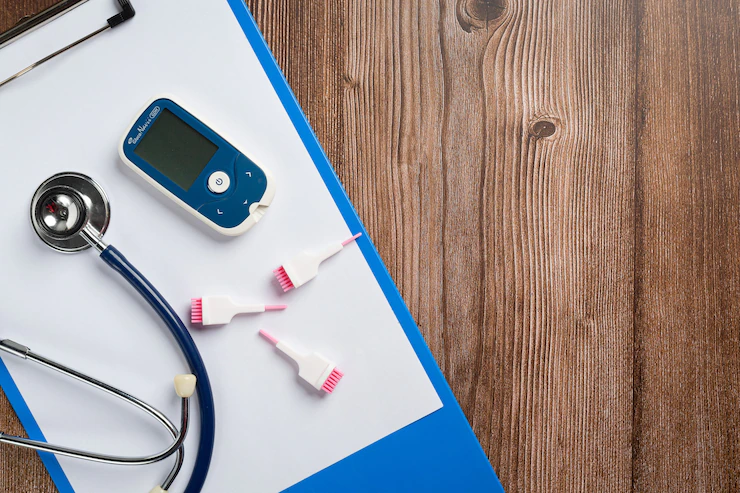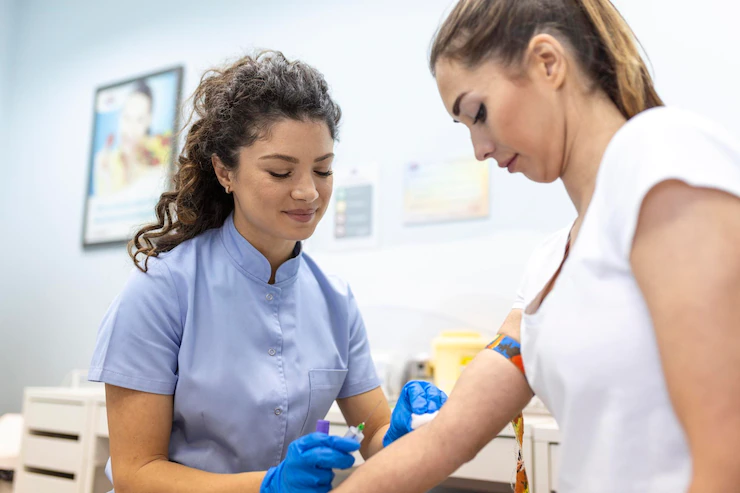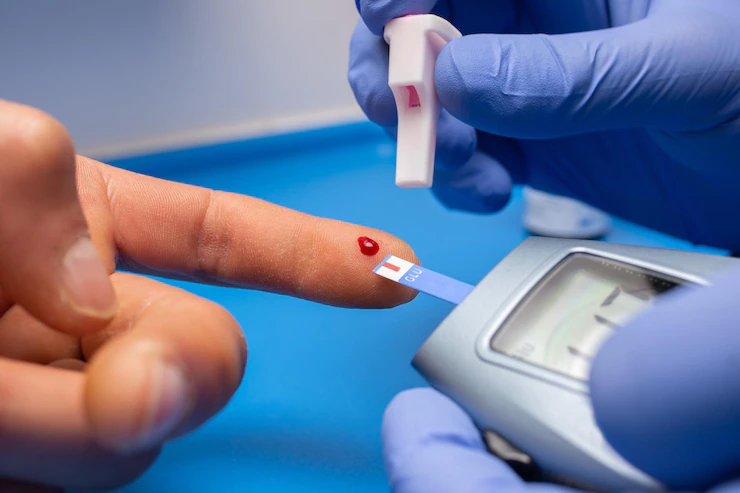How does a Blood Sugar Testing Kit Work?



Increased blood sugar levels are a matter of serious concern regarding your health. Manifesting in the form of diabetes, it is a chronic health disorder that's fast gripping a major chunk of the global population. It has the potential to severely affect your metabolism and the various organ systems of your body. In the UK, almost one in every 15 individuals suffers from diabetes, making a blood sugar testing kit a much-needed and more relevant tool than it was a decade ago.
A blood sugar test measures your blood glucose and is an essential tool for persons having diabetes. Blood sugar levels may drastically vary during different hours of the day when you have diabetes. Therefore, consistently monitoring your sugar levels is a necessity.

A venous plasma glucose test involves taking a blood sample from the vein in your arm, usually on the inner side of your elbow. A phlebotomist will make a tiny puncture into your vein to draw blood to measure your blood sugar levels. Some examples of venous plasma glucose are as follows:
Random Plasma Glucose test is often taken as part of a routine workup. Even if your test results are normal, your doctor may sometimes recommend doing further investigations in case you are at a higher risk of acquiring diabetes.
A fasting plasma glucose test is advised for persons who have already been diagnosed with diabetes to consistently monitor and keep a check on their blood sugar levels and also to evaluate the effectiveness of diabetic medications.
A Haemoglobin A1c (HbA1c) test is considered more accurate as it measures an average of your last three months' blood sugar levels. If you have been diagnosed with diabetes on a routine or fasting blood sugar test, your doctor will advise you to do an HbA1c test.

This is a finger prick test. A small prick is made with the help of a lancet to make a small blood sample to obtain your blood glucose reading. This test can be done with the help of a professional or you may be able to take the test by yourself at home.
The lancet is a tiny needle that is attached to a small plastic device. Once your finger is disinfected, either by washing them off or with the help of alcohol wipes, a small prick is made at the tip of your finger. The blood is then taken on a test strip which is inserted into the glucometer, which measures your blood sugar levels. You may consider taking a Welzo Diabetes blood test kit, a finger prick test containing both glucose and HbA1c as biomarkers to accurately measure your blood sugar levels.
A Continuous Glucose Monitor uses a sensor that is placed in contact with your skin. It measures the blood glucose in your interstitial fluid rather than your plasma. Therefore, it is not considered as accurate as the Venous Plasma Glucose test or the Finger Prick Glucose test.
The sensor is connected to your mobile or any other device via Bluetooth so that you can read your measurements. As the name suggests, a CGM continuously monitors your blood sugar and alerts you whenever your blood sugar levels are high or low.
A flash glucose monitor works similarly to a CGM, the only difference being it measures your sugar levels only when you wave the scanning device in front of the sensor that is usually fitted on your arm.
Blood sugar levels before meals (fasting): 4 to 6mmol/L or less than 7mmol/L
Blood sugar levels after meals: less than 8mmol/L
Blood sugar levels using an HbA1c Test: less than 48mmol/L
Blood sugar levels using a home blood test kit (fasting): less than 7mmol/L
Blood sugar levels using a home blood test kit ( after meals): less than 11mmol/L
Read more: What is the best time to check sugar for type 2 diabetes?
Diabetes refers to a group of metabolic disorders in which insulin secretion and/or function may be impaired. Insulin production may be affected to the extent that little insulin to no amount of insulin may be secreted in the body.
Diabetes may be broadly grouped into the following categories:
This type of diabetes is also known as Juvenile Onset Diabetes or Insulin -Dependent Diabetes and accounts for 5-10% of diabetic cases. It has an autoimmune cause characterized by pancreatic beta cell destruction resulting in absolute insulin insufficiency.
Previously known as non-insulin dependent diabetes or adult-onset diabetes, Type 2 accounts for 90 to 95% of diabetic cases. Factors such as age, sedentary lifestyle, obesity, and genetic predisposition carry the risk of type 1 diabetes.
Read more: Type 1 vs Type 2 Diabetes
This type of diabetes was previously known as Maturity Onset Diabetes because it affects people younger than 25 years. It is often associated with a defective gene.
Gestational diabetes is usually diagnosed during your pregnancy for the first time. A Blood sugar test helps to detect hyperglycemia which mostly goes away after delivery. Being diabetic calls for extra care and a healthier diet that caters to maintaining your blood sugar levels during pregnancy.
A prediabetic refers to a person whose blood sugar levels are somewhat higher than normal but are not that much increased to be categorized under type 1 or type 2 diabetes. When you are prediabetic, you may not usually require medications or injections, but you will have to keep control of your blood sugar levels with diet and lifestyle management.
Read more: Do I have Diabetes?
Diabetes is caused by a defect in insulin and glucose metabolism. Glucose is essential to the body for energy. It is known as the fuel for the proper functioning of your brain. The uptake of glucose by the cells in your body is controlled by insulin which is produced in the pancreas. Therefore, your pancreatic insulin helps maintain an optimum blood sugar level. The beta cells in your pancreas are responsible for insulin production in the body. An impairment in the production of insulin by beta cells of the pancreas or a defect in the uptake of insulin by the cells in your body, or ineffective function of insulin results in the rise of blood glucose. Chronically high blood sugar levels or hyperglycemia thus manifests what is called diabetes.
Some of the common symptoms associated with diabetes include the following:
Increased thirst
Frequent urination
Poor wound healing
Recurrent infections
Sudden loss of weight
Fatigue
Uncontrolled diabetes has the potential to cause serious damage to your vital organs resulting in cardiovascular, digestive and kidney diseases. Your eyes, kidneys, nervous system, and heart inevitably bear the brunt of your body's poorly controlled high blood sugar levels.
If you are diagnosed with diabetes, your doctor will prescribe medications based on the type of diabetes you have and your blood sugar levels.

Certain diet and lifestyle modifications may be called for in order to control your sugar levels.
Oral antidiabetic medications or insulin injections may also be prescribed to lower your increased blood sugar levels.










Plus get the inside scoop on our latest content and updates in our monthly newsletter.